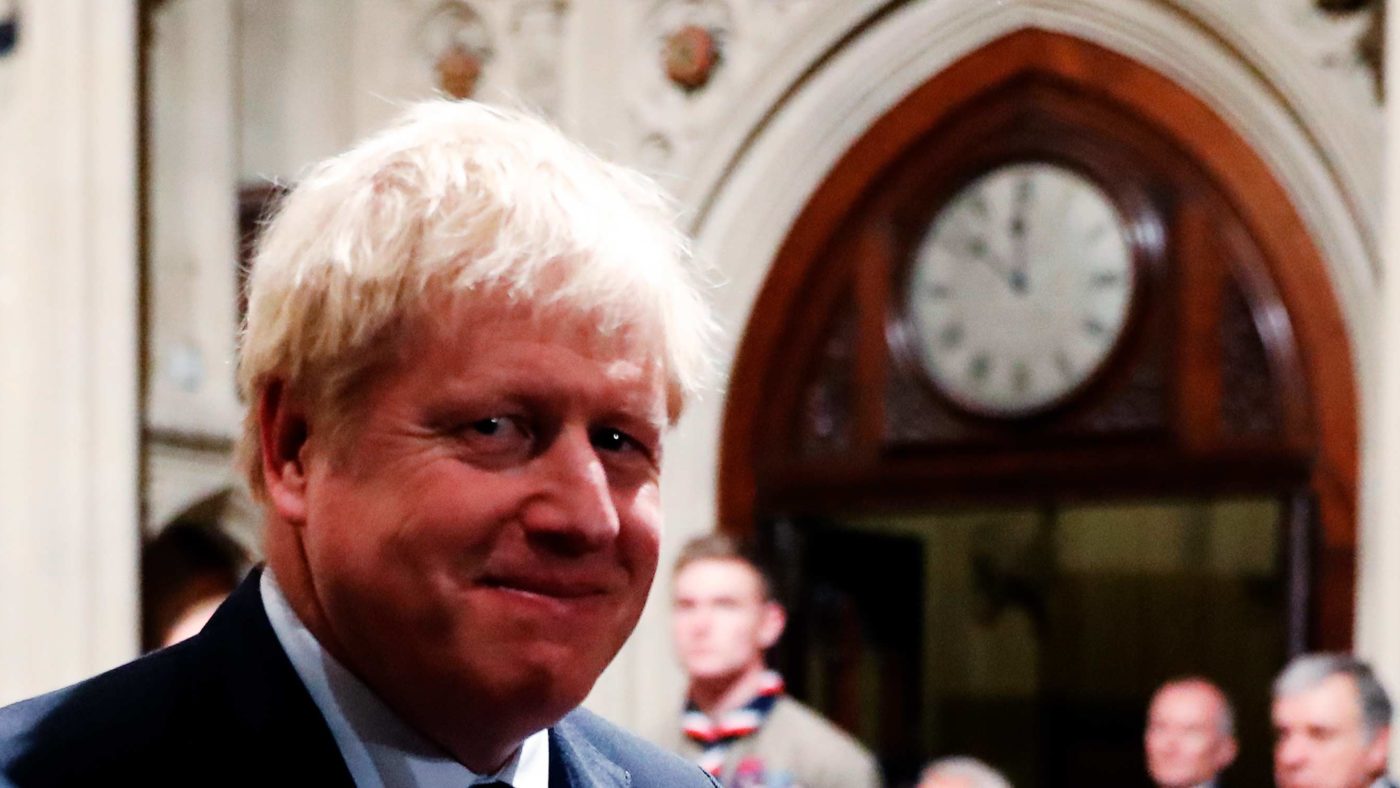What sort of Conservative is Boris Johnson? Is he a liberal, metropolitan optimist, capable of carrying the Tory standard into parts of London increasingly turned off by the Party? Or is he the keeper of the Brexit flame, forging a new Conservative coalition with working-class Leave voters in the North and Midlands?
Or is he an opportunist who likes to be liked, and allows anyone he’s with in a given moment to see what they want to see?
Thus far, the Prime Minister has managed to avoid giving a concrete answer to this question. Having come to office after an extended period of Conservative government, and in the midst of a long-running political crisis, he has not had the run-up to office enjoyed by the likes of David Cameron or Tony Blair. As a result, Johnson has missed out on (or if you’re a cynic, happily avoided) the need to spell out what precisely ‘Johnsonism’ added up to.
Yesterday’s Queen’s Speech was thus a bit of a watershed: the first time the Prime Minister has offered us a proper legislative outline of his plan for the country. What manner of Conservative does it reveal?
Surveying the 22 bills announced by Her Majesty yesterday, the only coherent answer that emerges is “an election-winning Conservative”.
This is no bad thing in itself – the Tories have a historic reputation for pragmatism about the need for power which Brexit has not yet entirely erased. But an observer looking at this list for evidence of a Johnson philosophy would be stretched.
Naturally, there are several bills relating to Brexit. On top of the actual Withdrawal Agreement Bill – just in case the Prime Minister actually secures a deal and wins a meaningful vote on it – these cover agriculture, fisheries, trade, and immigration and social security cooperation post-exit. That last is the one which apparently paves the way for an Australian-style, points-based immigration system and ends freedom of movement.
There are also some worthy carry-overs from the last parliament, such as the Domestic Abuse Bill and the bill aimed at reforming divorce law. Also present are a number of what look like quite technical bills covering pensions, financial services, and international family law, and a bill which aims to toughen up investigations into the NHS.
Next, we have a number of quite straightforward crowd-pleasers and retail offers: cracking down on animal cruelty, forcing restaurants to give tips to staff, and a bill promising to roll out “gigabit-capable” broadband across the country are all, whatever their other merits, obviously being tabled with an imminent election in mind.
Finally, comprising almost a third of the bills and by far the most coherent group, Johnson has decided to go with a mass of new law-and-order legislation.
We’ve got: delayed release for prisoners, and tougher sentences for violent or sexual offenders; a big increase in sentences for foreign offenders who have returned to the UK; and the so-called ‘Sarah’s Law’, which makes it easier to deny parole to murderers and child abusers who won’t identify their victims.
And that’s just sentencing! The Government also intends to legislate to give the police new powers to tackle drones and arrest wanted foreign suspects on British soil, introduce new tests to protect police drivers in the event of injuries during chases, and create new obligations for public bodies such as councils, healthcare providers, schools and so on to share information to ‘prevent serious violence’.
Suffice to say, the immigration reform and a lot of the police and justice bills are all extremely saleable on the doorstep too.
The overall effect is of a quite traditional, if slightly more nationalist, Tory campaign centred on law and order, immigration, and Brexit, leavened in places with issues such as environmental awareness and animal welfare. Absent is much by way of bold liberal or libertarian legislation – those who hoped that Johnson might be serious about rolling back the nanny state, for example, will look in vain for any such commitment. Is this ‘Johnsonism’?
Perhaps not. There is after all a perfectly cogent case to be made that this is a Queen’s Speech shaped by the exigencies of the moment. The Prime Minister’s critics are at least right to point out that it is highly unusual to have such an event in the (presumed) run-up to an election, rather than afterwards. It might be argued that once Brexit is delivered, and a majority won, Johnson can turn his mind to properly turning his vision into a legislative agenda.
Perhaps that’s true. But it leaves us in what has become a familiar position: hoping for the best while we wait for the real Boris Johnson to please stand up.
CapX depends on the generosity of its readers. If you value what we do, please consider making a donation.


